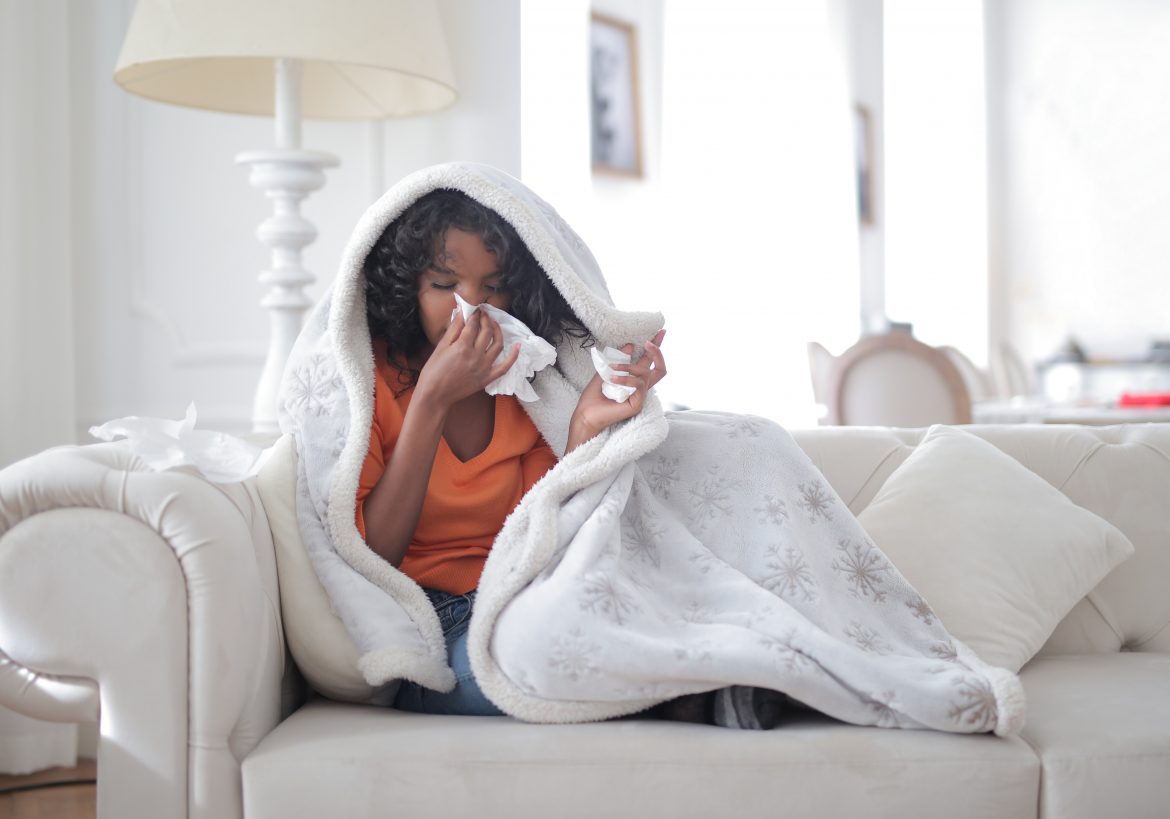It’s hard to stay healthy when everyone around you is sniffing and coughing. We’ve got you covered this winter.
Eat healthy foods
This may seem like a no-brainer, but what we know doesn’t always translate into what we do. Although we know our bodies need lots of vitamins found in fruit and vegetables, in the colder months it’s easy to reach for comfort food such as a hot pie instead of a healthy salad. But comfort food can be healthy too: Hearty home-made soups crammed with veggies or a fragrant curry spiced with immune-boosting ginger and turmeric are delicious ways to keep colds and flu at bay.
Get into good habits
Take preventive action against the risk of infection by establishing practices that the whole family follows. When people cough or sneeze, flu germs can stick to objects such as shopping trolleys or taxi and bus seats, so make sure everyone washes their hands as soon as they get home. Teach children to cover their nose and mouth when they sneeze or cough, and throw away used tissues immediately. Wipe down shared surfaces that could be germtraps, for example, the telephone, PC keyboard and mouse. Try to avoid close contact with sick family members – don’t let them dish their own food or touch kettles and milk bottles until they are no longer infectious.
Keep on walking
Unless you participate in organised sport, you probably reduce your outdoor activities when the days get shorter and colder. Surprisingly, exercise is not only good for muscle toning and circulation, but also for boosting the immune system, though intense exercise (for example, running a marathon) can suppress immunity temporarily. Walking is an excellent form of exercise for young and old because people can pace themselves. It’s also more cost-effective because it doesn’t require expensive equipment.
Get enough sleep
On icy winter mornings when the alarm goes off, we would all love to snuggle under the duvet a little longer, but if we’re not getting to bed early enough, we could be putting ourselves at risk of infection. A well-rested body is better able to fight off nasty viruses than a tired, overworked one. Individual sleep requirements do vary, as some people can manage on fewer hours of sleep than others, but the average adult still needs 7 to 9 hours of sleep, while kids need more; about 9 to 11 hours.
Use Supplements
Healthy lifestyle changes are a good foundation for fighting germs, but some supplements can give you a protective edge. Vitamin C has so many health benefits that you should be taking it all year round, but increasing your dose in winter is an excellent idea. Echinacea formulations have been used against colds and flu for many years. There is a multitude of products on the pharmacy shelves at this time of year, so speak to a health professional to find out which ones would best suit your needs before trying something new.
ALSO SEE IMMUNE BOOST HOME REMEDIES
[Image by Andrea Piacquadio via Pexels]

